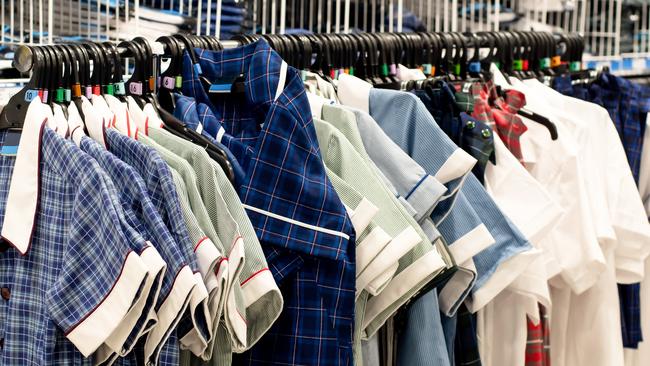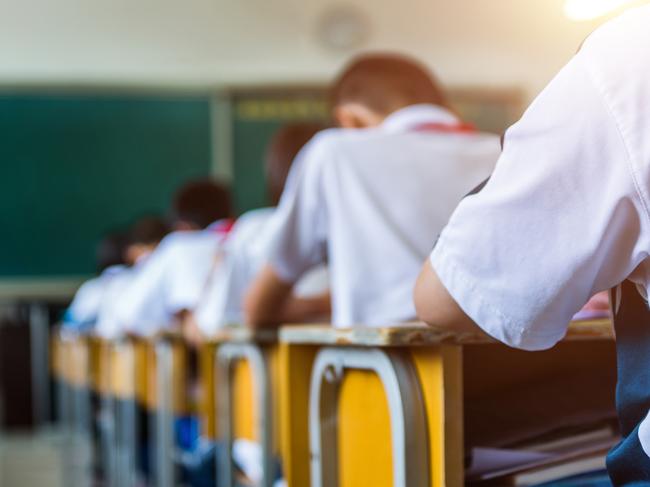Melbourne the second most expensive city for private schooling in Australia
Prep students starting private school this year are tipped to cost their parents the equivalent of three average house deposits in fees over 13 years, forcing many to sacrifice holidays and work more hours to foot the bill.

Victoria
Don't miss out on the headlines from Victoria. Followed categories will be added to My News.
Parents with children commencing prep at private schools this year are predicted to pay the equivalent of three average house deposits over a 13-year period, new data analysing long-term education costs has revealed.
Futurity Investment Group’s Cost of Education Index – released today – estimates this year’s cohort of prep students at independent schools will accumulate $388,618 in education expenses by the time they graduate year 12.
This is $38,460 more than the national metro average, making Melbourne the second most expensive city for independent education in Australia.
School fees make up 62 per cent of the total cost, with the remainder spent on ancillary expenses including $1356 on electronic devices, $1263 on musical instruments and $940 on outside tuition.
Meanwhile catholic education in Melbourne is the third most expensive nationally with total costs over 13 years increasing by two per cent to $198,291.
But parents sending their child to a regional Victorian catholic school this year can breathe a sigh of relief, with costs plummeting by 13 per cent to $151,423.
Futurity Investment Group executive general manager of corporate affairs Sarah McAdie said parents sacrificed family holidays, had grandparents paying fees and worked more so they could send their child to an elite private school.
While private school expenses have surged in metro Melbourne, the education state has somewhat redeemed itself by losing the “most expensive city for government schooling nationally” title, which it has held since 2022.
Melbourne is now the second most-affordable city for government school education behind Canberra, with parents who have children commencing prep this year at Melbourne public schools expected to accumulate up to $114,126 in expenses by the time they graduate – $5000 more than last year.

Meanwhile, the total cost to send a child to a regional Victorian government school over the same period has decreased from $79,678 to $77,641.
Researchers took into account tuition fees and auxiliary costs including electronic devices, camps, transport, uniform, musical instruments, textbooks and library fees to determine an estimated long-term education cost projected over a 13-year period for each sector and capital city.
Ms McAdie said while Melbourne was one of the most-affordable cities for government schooling, parents were being stung by the highest voluntary contribution percentage in the country.
“In Melbourne, parents reported spending $626 on (voluntary contributions) – about 12 per cent of the cost of a government education – while in some other states it was as low as 5 per cent,” she said.
Consequently, Ms McAdie said parents were spending less on ancillary expenses to make up for those costs.
Independent Schools Victoria chief executive Rachel Holthouse and Victorian Catholic Education Authority chief executive Professor Elizabeth Labone both said private and catholic schools respectively offered a wide range of fee options, so there were affordable options for every family and that schools “strived to keep fee increases to a minimum”.
They also both said the state government’s “unfair payroll tax” was “placing an extra burden on family budgets” as schools had to take them into account in their fees.
Opposition education spokeswoman Jess Wilson said limits on how parents could spend the School Saving Bonus and the payroll tax on independent schools were also driving up education costs in Victoria.
“A future Liberal and National Government will repeal Labor’s Schools Tax and save families thousands of dollars a year,” she said.
Education Minister Ben Carroll said the government had made “record investments in the Education State” so every child had access to “world-class education at no cost in a Victorian government school”.
“That’s why we’re helping busy families with our $400 School Saving Bonus, which is helping ease the back-to-school cost burden for families, on top of School Breakfast Clubs, affordable school uniforms, Glasses for Kids, to the Camps, Sports and Excursions Fund,” he said.
More Coverage
Originally published as Melbourne the second most expensive city for private schooling in Australia





